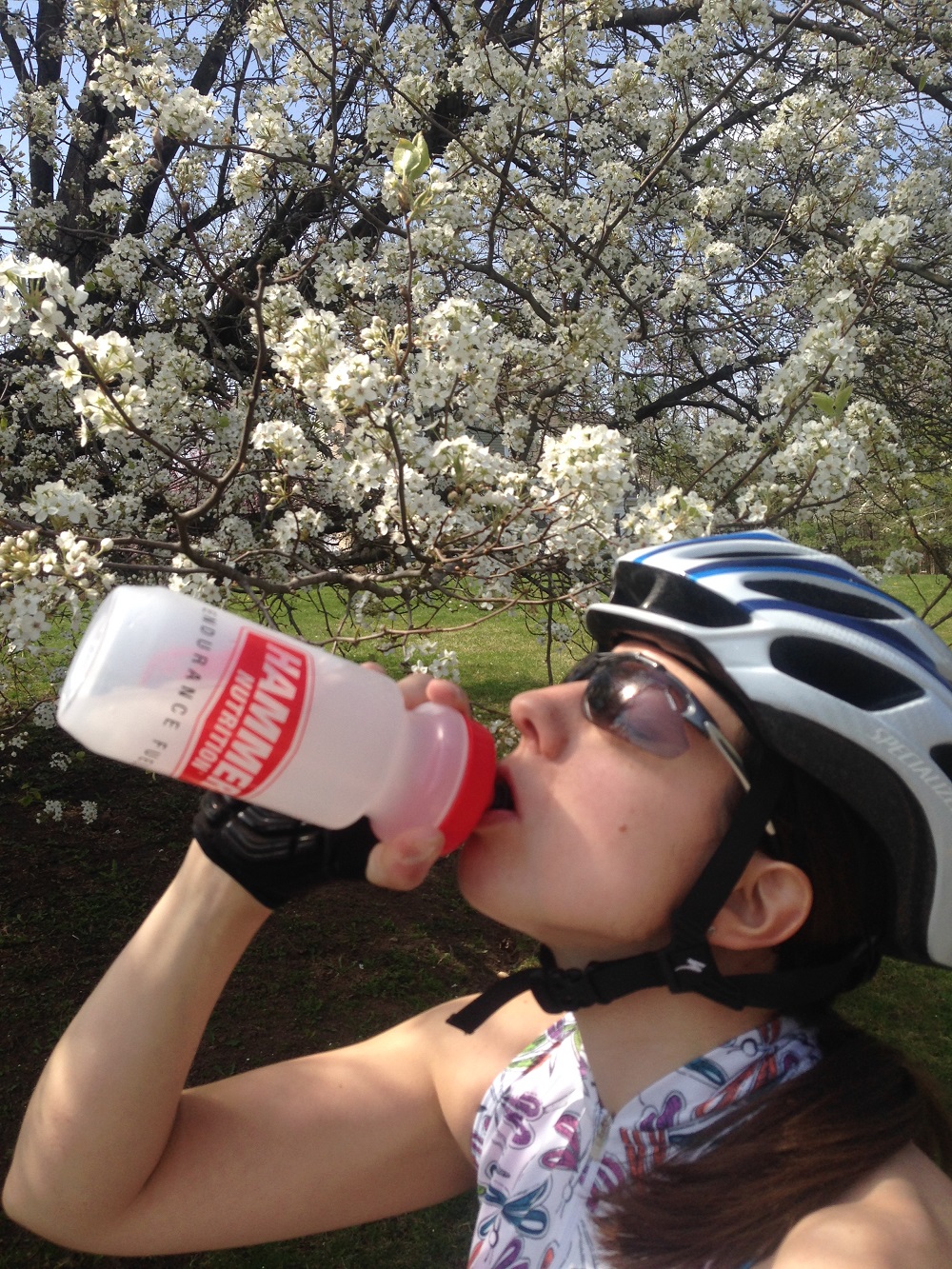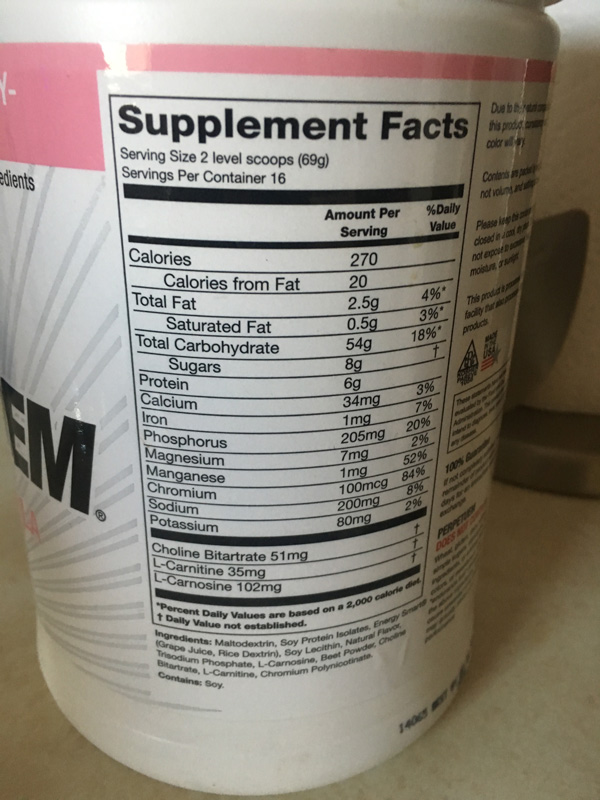The dreaded bonk; one of the worst feelings during a long race or even a training day. All of a sudden you are lacking energy, maybe even feel somewhat sick and at that point even if you eat or drink you have already put yourself in a bad position Once you have hit the point of bonking it will take a while for your body to digest the fuel to get to your muscles which are already at a deficit. When you are heading out for a long day of training or a long endurance race, whether it be running or cycling (or both), you are going to need some kind of fuel to keep your body from running on empty.
The general rule of thumb is that you should be drinking one bottle of fluid for every hour you are out training or racing. Also you should be making sure you eat something every forty-five minutes to an hour. Don’t wait until you feel hungry or thirsty to eat or drink just take a sip or a bite every time the thought crosses your mind.

Beyond those basics, what type of fuel should you be ingesting to ensure you have enough energy to have a good strong race? Does it even matter as long as you are giving your body some kind of fuel? What kinds of foods or drinks work best? What can you do to give yourself the best chance of success and the lowest chance of bonking or becoming sick during your race? Here are some things to remember about nutrition for endurance events.
#1 – Eat a good solid meal rich in carbohydrates and protein before you head out for that long day on the road!
You never want to start your event or training day on an empty stomach. That would be like starting your car with the fuel tank on empty, you won’t get very far before it needs more fuel to continue on. Also, if you do choose to fuel solely on energy gels or some kind of liquid nutrition your body will need a slower digesting food as a base before consuming all of those liquid carbohydrates and sugars.
#2 – Test your fuel and train your body to use and digest it!
No matter how you decide to fuel your body, make sure you test it out in training and get your body used to the kind of nutrition you plan to use. So if you plan to eat cliff bars all race long then eat them while training, same goes for energy gels or even liquid nutrition like Perpetuem or UCAN. You can train your body to be used to the kind of fuel you plan to give it on race day. Also, if something is going to react poorly in your system it’s better to find out on a training day rather than in the middle of a marathon or half ironman.
#3 – The harder you are working the more energy your body diverts from digestion to other systems and muscles in the body.
If you are out for a nice long training ride or run your body may be able to digest items like a solid and complex energy bar just fine because you are only working at maybe a 60-70% effort. However, on race day when you are pushing your effort closer to 85-90% your body is working much harder to keep you moving at that pace and therefore cannot divert as much energy to the digestive process. When you are pushing hard for a long period of time, fuel that is easier to digest is a better option, at least as the primary source of nutrition. Liquid and gel fuels are quickly absorbed and digested because they require less breakdown by the body.
#4 – Look for an energy drink or gel that contains complex carbohydrates and a bit of protein instead of simple sugars for sustained energy.
Some people believe that slower digesting, complex carbohydrates are not the greatest on race day because they take longer to be processed and get energy to your muscles. It is also said that consuming foods that are slower to digest can cause gastric upset which can derail your race. These assumptions may not be completely accurate.
The simple sugars in many energy gels give you claim to give you quick and easy energy, but need to be taken with a decent amount of water in order to be digested quickly and properly. If you are consuming large amounts of concentrated energy gel without water you will also most likely wind up suffering from gastric upset eventually or dehydration as your body takes the water away from other vital sources in order to digest these simple sugars.
A study done by Hammer Nutrition showed these findings related to simple sugars versus complex carbohydrate sources of energy:
The bottom line is that simple sugar-based drinks or gels have to be mixed and consumed at very dilute and calorically weak concentrations in order to be digested with any efficiency. A simple sugar-based product used at a properly mixed concentration cannot provide adequate calories to sustain energy production. Any way you look at it, fuels containing simple sugars are inefficient and therefore not recommended during prolonged exercise.
Complex carbohydrates (polysaccharides) are the best choice for endurance athletes, as they allow your digestive system to rapidly and efficiently process a greater volume of calories, providing steady energy. Unlike simple sugars, which match body fluid osmolality at 6-8% solutions, complex carbohydrates match body fluid osmolality at substantially more concentrated 15-18% solutions. Even at this seemingly high concentration, complex carbohydrates (maltodextrins/glucose polymers) will empty the stomach at the same efficient rate as normal body fluids, providing up to three times more calories for energy production than simple sugar mixtures. This means that you can fulfill your caloric requirements without running the risk of overhydration or other stomach-related maladies.

Be sure to read the nutrition label and ingredients before purchasing a drink mix or other nutritional product.
So what is the best way to fuel?
Everyone is different so there may not be just one correct way, however fueling with a complex carbohydrate liquid or mixture is probably something that would work well for the majority of athletes. These complex carbohydrate drink mixes provide athletes with no only quick but sustained energy. You can also add more powder to the mix to make it slightly richer in calories and nutrients.
Before buying a drink mix or gel, check the label and look for the complex carbs. For example, the first ingredient in Perpetuem made by Hammer Nutrition is maltodextrin, a complex carbohydrate as opposed to something like Gatorade which has dextrose as one of the first ingredients which is a simple sugar. Most commonly known brands of energy gel do start off their ingredient list with Maltodextrin, Hammer, Power Bar, Gu, Clif, all meet this criterion but do remember that these are more concentrated and need water to dilute them for digestive purposes.
Whatever you decide to use to fuel do your best to ensure that it is something that will give you energy over the course of a long event. Again, be sure test it out in training to be certain that it works well for you. With a little bit of preparation and research hopefully you will have a solid, tried and true fuel that will lead you to the podium or at the very least, to the finish line instead of the medical tent.